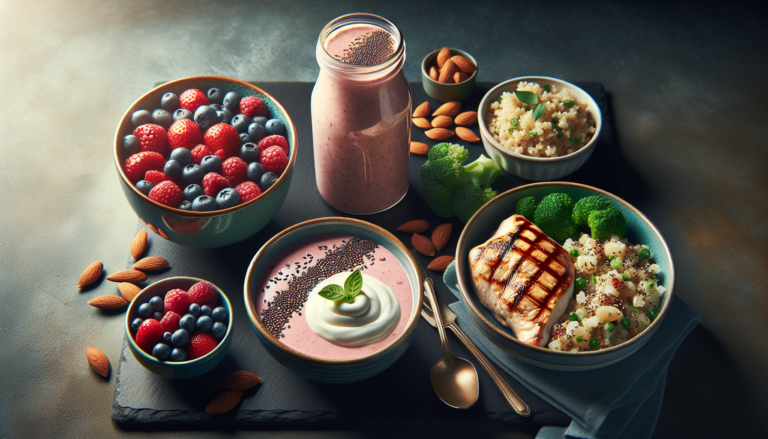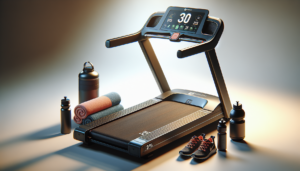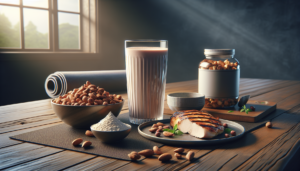Importance of Post-Workout Nutrition for Weight Loss
Post-workout nutrition plays a crucial role in achieving weight loss goals while supporting muscle recovery and overall health. Consuming the right nutrients after exercise can help optimize the body’s recovery processes, reduce muscle soreness, and promote healthy weight management.
Why Post-Workout Nutrition Matters
After an intense workout, your body is in a state of repair and recovery. During exercise, your muscles use up their glycogen stores for energy and suffer micro-tears, which need to be replenished and repaired. Proper post-workout nutrition provides the necessary building blocks for muscle recovery and can help prevent muscle breakdown. Moreover, consuming the right nutrients after exercise can help regulate appetite and support healthy weight loss.
Timing Your Post-Workout Meal
The timing of your post-workout meal is essential for optimal recovery. Experts recommend consuming a combination of protein and carbohydrates within 30 minutes to 2 hours after exercise. This window of opportunity allows your body to efficiently absorb and utilize the nutrients for muscle repair and glycogen replenishment. Planning ahead and having a nutritious meal or snack ready can ensure you make the most of this critical recovery period.
Essential Nutrients for Post-Workout Recovery
To support muscle recovery and promote weight loss, it’s crucial to focus on three main macronutrients: protein, carbohydrates, and healthy fats. Each plays a specific role in the post-workout recovery process.
Protein: The Building Block for Muscle Recovery
Protein is the most important macronutrient for post-workout recovery. Consuming 20-40 grams of high-quality protein within the first few hours after exercise stimulates muscle protein synthesis, helping to repair and rebuild muscle tissue. Good sources of post-workout protein include lean meats, fish, eggs, Greek yogurt, and protein supplements like whey or plant-based powders.
Carbohydrates: Replenishing Glycogen Stores
During intense exercise, your body depletes its glycogen stores, which are the primary fuel source for your muscles. Consuming carbohydrates post-workout helps replenish these glycogen reserves, promoting recovery and preparing your body for future workouts. The amount of carbohydrates needed varies based on the type and duration of exercise. Good options include fruits, whole grains, and starchy vegetables.
The Role of Fats in Post-Workout Nutrition
While protein and carbohydrates are the primary focus of post-workout nutrition, healthy fats can also play a supportive role. Fats help slow down digestion, which can be beneficial for sustained energy release and appetite control. However, it’s essential to choose healthy fat sources and consume them in moderation. Examples include avocados, nuts, seeds, and olive oil.
Top Foods to Eat After a Workout for Weight Loss
Incorporating the right foods into your post-workout meal can make a significant difference in your recovery and weight loss journey. Here are some top choices:
Grilled Chicken with Roasted Vegetables and Rice
This well-rounded meal provides a balance of lean protein, complex carbohydrates, and fiber. The grilled chicken offers essential amino acids for muscle repair, while the roasted vegetables and rice replenish glycogen stores and provide valuable micronutrients.
Greek Yogurt, Berries, and Granola
Greek yogurt is an excellent source of protein, with a single serving containing up to 20 grams. Pairing it with antioxidant-rich berries and fiber-filled granola creates a nutritious and satisfying post-workout snack that supports recovery and weight management.
| Food | Protein (g) | Carbs (g) |
|---|---|---|
| Greek Yogurt (1 cup) | 20 | 8 |
| Berries (1 cup) | 1 | 20 |
| Granola (1/4 cup) | 4 | 20 |
Cottage Cheese and Fruits
Cottage cheese is a protein powerhouse, with a 1/2 cup serving providing around 14 grams. Combining it with nutrient-dense fruits like peaches, pineapple, or berries adds natural sweetness and valuable vitamins and minerals to support overall health and recovery.
Protein Shakes and Smoothies
For those short on time, a protein shake or smoothie can be a convenient way to get quick nutrients after a workout. Blend your favorite protein powder with fruits, vegetables, and a liquid base like almond milk or coconut water for a refreshing and nourishing drink. Experiment with different combinations to find what works best for your taste preferences and recovery needs.
Oatmeal with Fruits and Nuts
Oatmeal is a slow-digesting carbohydrate that provides sustained energy and aids in replenishing glycogen stores. Top a bowl of oatmeal with protein-rich nuts and fiber-filled fruits for a filling and nutritious post-workout meal. This breakfast dish is especially suitable for morning exercisers.
Hydration: The Key to Effective Recovery
In addition to solid foods, staying hydrated is crucial for post-workout recovery and weight loss. During exercise, your body loses fluids and electrolytes through sweat, which need to be replenished to maintain optimal performance and health.
Importance of Water and Electrolytes
Water is essential for many bodily functions, including nutrient transportation, temperature regulation, and waste removal. Aim to drink at least 16-24 ounces of water for every pound lost during exercise. Electrolytes, such as sodium, potassium, and magnesium, are also lost through sweat and play a vital role in hydration and muscle function. Replenishing these electrolytes can help prevent cramping and promote efficient recovery.
Healthy Hydration Options
While plain water is always a good choice, there are other healthy options for staying hydrated after a workout:
- Coconut water: A natural source of electrolytes and potassium
- Herbal teas: Caffeine-free and rich in antioxidants
- Electrolyte drinks: Specially formulated to replace lost minerals
- Infused water: Add sliced fruits, vegetables, or herbs for flavor and nutrients
Monitoring Caloric Intake for Weight Loss
While post-workout nutrition is essential for recovery, it’s also crucial to consider your overall caloric intake when aiming for weight loss. Consuming more calories than you burn can hinder progress, even with a consistent exercise routine.
Balancing Calories and Nutrients
To achieve weight loss, you need to create a calorie deficit by consuming fewer calories than you expend. However, it’s important to strike a balance between calorie reduction and nutrient density. Focus on whole, minimally processed foods that provide a variety of vitamins, minerals, and fiber to support your health and recovery. Avoid severely restricting calories, as this can lead to muscle loss and metabolic adaptations that make weight loss more challenging.
Tracking Your Food and Water Intake
Keeping a record of your food and water intake can help you stay accountable and make informed decisions about your post-workout nutrition. Use a journal, app, or spreadsheet to log your meals, snacks, and hydration throughout the day. This practice can also help you identify areas for improvement and make necessary adjustments to support your weight loss goals.
In conclusion, post-workout nutrition is a critical component of any weight loss journey. By focusing on the right nutrients, timing your meals strategically, and staying hydrated, you can optimize your recovery, support muscle growth, and promote healthy weight management. Remember to choose whole, nutrient-dense foods and listen to your body’s hunger and satiety cues. With consistency and dedication, you’ll be well on your way to achieving your weight loss goals while maintaining optimal health and performance.






